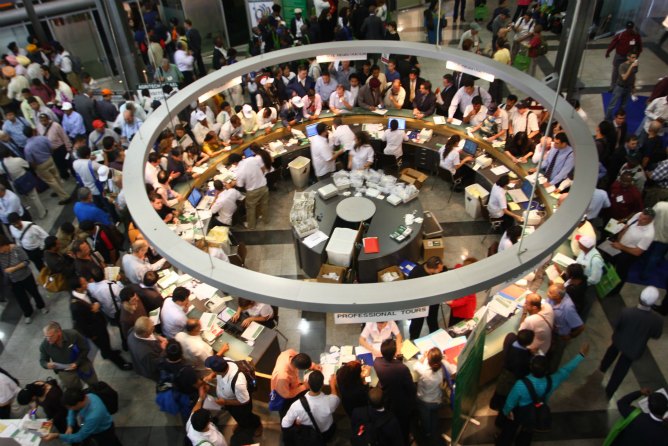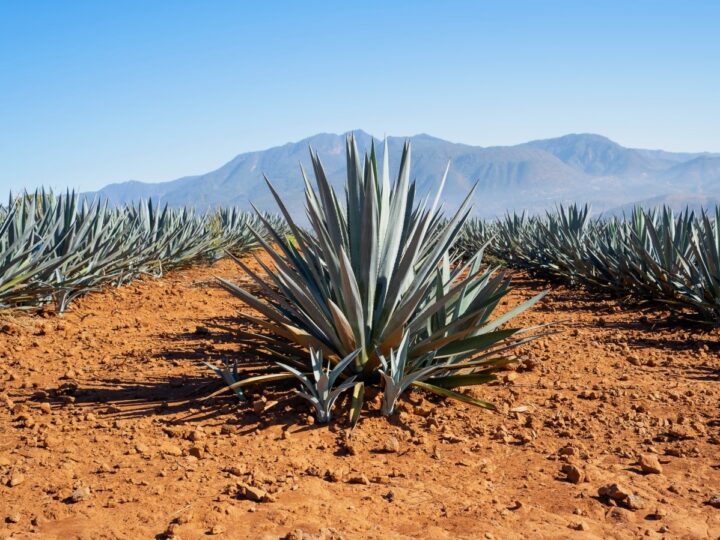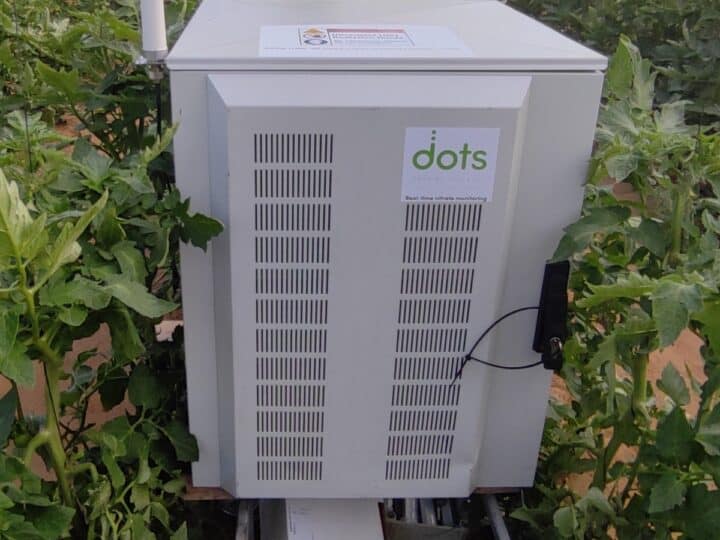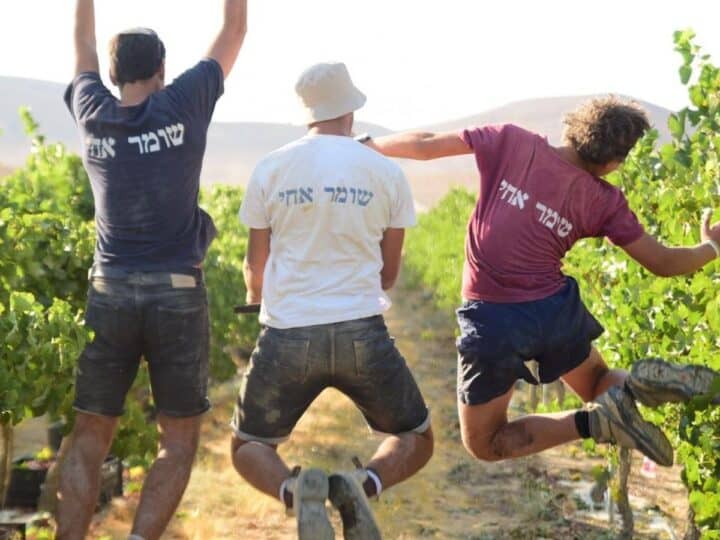Israel’s agriculture scientists have revolutionized the way farmers irrigate and store crops, protect plants from drought and disease, keep pests away naturally, and purify and reuse wastewater.
That’s why more than 7,000 foreign visitors from 115 countries are expected to converge on Tel Aviv from May 15-17 for Agritech Israel 2012, Israel’s 18th International Agricultural Exhibition. About 200 companies will show potential customers the newest approaches and inventions to grow better crops, flowers and even fish and dairy cows.
Here’s a preview of just some of the cutting-edge products to be demonstrated.
Extracting pomegranate seeds
The ruby-red seeds (arils) of the pomegranate fruit offer a host of health benefits. However, extracting the seeds to package them for salads or to press for pomegranate juice is a labor-intensive and messy business.
Where better than Israel, a country whose pomegranates are a national symbol, to come up with a neat solution?
At Agritech, general manager Avner Galili of Juran will demonstrate ArilSystem (http://www.arilsystem.com), a machine that rapidly extracts pomegranate seeds in commercial quantities.
ArilSystem also removes the tough peel and inner membranes, a particularly important selling point for the beverage industry since the tannins in pomegranate membranes add a bitter taste to the juice.
“Pomegranate is an evolving product worldwide,” Galili tells ISRAEL21c. “Juran is the world leader, using a patent developed mutually by us and the Volcani Institute-Agricultural Research Organization,” an agency of the Israeli Ministry of Agriculture and Rural Development.
“We believe the only way to keep the pomegranate sector profitable is by industrializing it — fresh-cutting, juicing, drying and freezing. Juran supplies all of the needed equipment and technology for doing it.”
In business for more than 45 years, Juran designs and manufactures innovative machinery for agriculture and the food industry to streamline operations and revolutionize tedious processes such as picking, packing and sorting.
[scrollGallery id=3 useCaptions=true]
Sharing know-how with other countries
The most advanced irrigation and fertilization technologies coming out of Israel will be presented at Agritech by Yuval Elazar, head of special training activities at the CINADCO Center for International Agricultural Development Cooperation.
Based in Rishon LeZion, CINADCO implements Israel’s agricultural cooperation policies with more than 140 developing nations, working through MASHAV, the Israeli agency for international development. Multilingual training sessions in Israel and abroad cover water resources management, irrigation and fertilization, sustainable market-oriented agriculture, intensive livestock and dairy production.
There are numerous examples of how Israel has shared its agricultural technology breakthroughs practically since the founding of the state. Across the globe, countries use Israeli methods for raising crops and farm animals.
At the Agritech expo, representatives from Hof Hasharon Dairy Farm, SAE Afikim (www.afimilk.com) and http://www.scrdairy.com/default.asp will demonstrate their advanced systems for herd management, monitoring and feeding.
Afikim’s AfiMilk subsidiary recently taught two visiting groups of Chinese dairy farmers and dairy experts how to use AfiMilk technologies to increase milk production, improve efficiency and care for dairy cows.
AfiMilk equipment is installed at 105 milking parlors in China. And last year, a new company in Vietnam signed a five-year contract with the Israeli company to set up a major dairy farm project.
Watering the desert
Director Aylon Gadiel of the Central and Northern Arava Research and Development will explain to Agritech visitors how Israel continues to turn deserts into fertile growing grounds.
“We do a lot of projects with water usage and everything having to do with irrigation, because we’re in an area that is not connected to the national water carrier and all the water we have is saline,” he explains to ISRAEL21c.
These R&D projects in the central and northern Arava Valley, part of a 112-mile region stretching from the Dead Sea south to the Red Sea, focus on vegetables, ornamentals, plant protection, orchards, organic agriculture, fishery and produce quality.
“We have to do a lot of research to give answers to growers who are seeking to make better use of water with the quality we have right now,” says Gadiel. “It’s irrigation and fertilization together, or what we call ‘fertigation.’”
All successful Arava R&D technologies are shared with the 600 or so farmers of the Arava and with agriculturists in other countries. By 2007, the Arava was the source of about 60 percent of total Israeli exports of fresh vegetables and about 15% of its ornamentals export total. Most everything is grown in high-tech greenhouses and shadehouses.
Protecting natural resources
Dean Aharon Friedman tells ISRAEL21c that preserving the environment is the motivation behind many of the developments at the Robert H. Smith Faculty of Agriculture of the Hebrew University.
“There is no room for abusing natural resources anymore,” Friedman says.
At the Rehovot campus, researchers are involved in myriad projects based on this principle. One uses oyster mushrooms to turn non-biodegradable residues from cotton harvesting and olive-oil production into nutritious cattle feed. Another uses engineered tobacco plants to produce inexpensive and plentiful collagen for biomedical purposes.
The university’s scientists also, of course, concentrate on water conservation. Israel leads the world in wastewater reclamation, says Friedman. “We are the only country that recycles 70 percent of its sewage water for irrigation. We really try to revitalize as much water as possible.”
Hebrew University water scientists pioneered solutions ranging from cheaper and better filtration systems to beads of bacteria that continuously purify and recycle the water in artificial fishery ponds.
All of this, and much more, will be showcased at Agritech 2012.

















